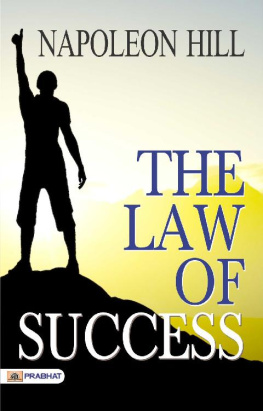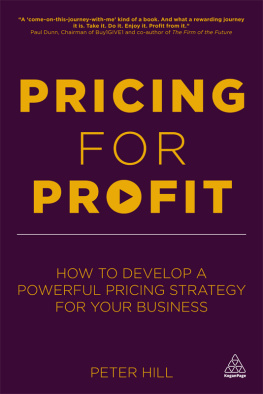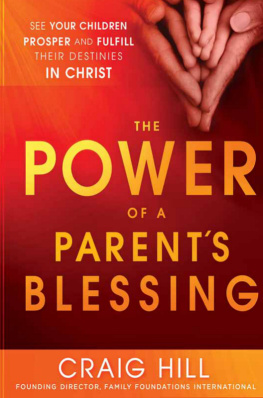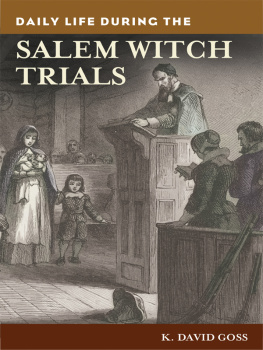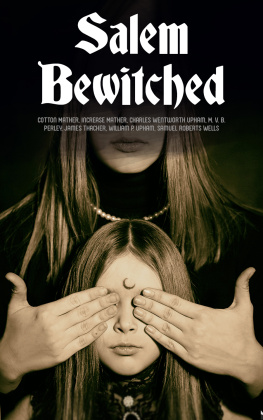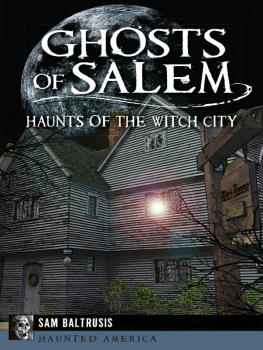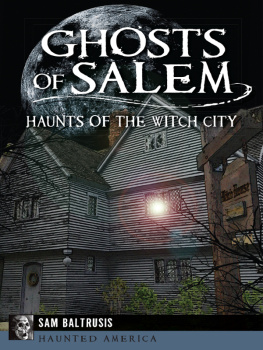Contents
A Delusion of Satan:
The Full Story of the Salem Witch Trials
By Frances Hill
Introduction by Karen Armstrong
Tantor Media, Inc.
6 Business Park Road
Old Saybrook, CT 06475
tantor.com
tantorpublishing.com
Copyright 1995 by Frances Hill
Preface copyright 2002 by Frances Hill
All rights reserved. No part of this publication may be reproduced, stored in a retrieval system, or transmitted, in any form or by any means, electronic, mechanical, photocopying, recording, or otherwise, without the prior written permission of the publisher.
ISBN: 1618031147
ACKNOWLEDGMENTS
I would like to thank the staff of the Essex-Peabody Museum, Salem, Massachusetts, for their patient help. I would also like warmly to thank Vicki Itzowitz for giving generously of her time in finding some elusive materials for me; Stevie Davies for reading and commenting most helpfully on the passages about Calvinism; Kate Fahy, the actress, for describing to me her experience of developing the part of a "possessed" evangelist; David Bridland, the magician, for explaining some of the psychological tricks of his trade; Leon Arden for reading the manuscript as I wrote it, chapter by chapter, and preventing me from veering off course; and David de Keyser for reading the completed manuscript and smoothing out rough patches. My very warm thanks to all of them, together with Shari Benstock, Deborah Moggach, Philippa Ingram, and Anne MacArthur, for their generous support and encouragement. I have modernized the spelling and punctuation of the contemporary records to prevent annoyance and confusion; however, I have been careful never to alter the meaning. Needless to say, all mistakes and infelicities are my own.
INTRODUCTION
By Karen Armstrong
People on both sides of the Atlantic have long been fascinated by the Salem witch-hunts. They have instinctively attributed to them an importance that is surprising, considering that they lasted only a short time and were fortunately quickly contained. Thousands of witches died during the great witch-hunts that devastated Europe during the sixteenth and seventeenth centuries, afflicting Catholic and Protestant countries alike. In some Swiss villages, there were scarcely any women left alive after the frenzy had finally burned itself out. Yet this catastrophe is almost too large to grasp. Precisely because the Salem disaster was on a much smaller scale, victims and perpetrators alike can become intimately known to us. By studying what happened in Salem in detail, we can learn some valuable but painful lessons about the darkness and perversity of the human heart, and about some of the particular dilemmas that continue to afflict the Western spirit.
Arthur Miller memorably illustrated the emblematic nature of the Salem tragedy in The Crucible , pointing to the parallel with the McCarthy trials of the 1950s. For nearly a thousand years, the peoples of Western Europe and America have been periodically convulsed by a murderous fear of enemies whom they have fashioned in their own image and likeness. Jews, Muslims, heretics, Communists, and women have all at times been presented as the enemies of society. Often they were described in ways that revealed a profound disturbance in the Western psyche. In Europe, the fantasies that showed Jews as child-slayers displayed an almost oedipal fear of the parent faith; the conviction that women had sex with demons and flew through the air to worship Satan in orgiastic parodies of the Mass showed a truly diabolic terror of sexuality and the female. Crusaders and inquisitors sought out these imaginary foes and killed them. Some of the people who had been terrorized in this way left Europe, fleeing religious persecution to find a new and better world in America. But, as Salem shows, they brought their phobias and frustrations with them. They also brought from Europe an inadequate conception of religion. Instead of seeing compassion as the primary religious virtue, the Puritans of New Englandlatter-day Crusaderscultivated a harsh, unyielding righteousness that was quick to judge and condemn. Instead of seeing God as all-powerful and all-forgiving, the Puritans saw Satan everywhere. Western Christianity is unique among the monotheisms in the power it has attributed to the Devil. In Judaism, Satan is firmly subservient to God, and evil is never allowed to attain such near-omnipotent status. In Islam, Satan is either a trivial creature, not to be taken seriously, or he will be forgiven on the Last Day; he can never be an ultimate threat and is no match for Allah. But Western Christians have not always attained that degree of confidence in their God. From the start, religion was often experienced as a struggle and a strain.
All these traits can be seen in the story of Salem. Yet until now there has been no easily accessible account of the witch-hunt there. When I visited Salem in 1992, I looked in vain in the bookstore for a serious study. I found many books about the occult, New Age theology, and modern "pagan" movements, but nothing to explain in depth what had happened in that New England village in 1692. It is incorrect to class the "witches" of Salem with the so-called "white witches" beloved by modern feminists. There is nothing healing or spiritual about the Salem story. It teaches something far more uncomfortable about the ills that afflict our own society and that plague our own hearts. That is why Frances Hill has performed such a valuable service. Her carefully researched and compelling account helps us to enter into Salem life in such a way that the protagonists become real individuals, with mundane concerns and frustrations familiar to each one of us. As we read, we learn how boredom, envy, a sense of injustice or of being marginalizedtrivial ills that we have all experiencedcan fester and explode into a destructive violence that assumes truly diabolic proportions.
Salem happened in the New World. The Protestant reformationof which the Puritans were the proud vanguard in the seventeenth centuryclaimed to have thrown aside the medieval shibboleths of Catholic Europe. The American Revolution would be fueled by the ideals of the Enlightenment, its Constitution inspired by the Age of Reason. Yet, like Europe, the United States would continue to be plagued by the primitive terrors that lie beyond the control of rationality. It is a reminder that, however modern and scientific our society, we can still be haunted by inner demons, which we project outward onto others with abhorrent effect. During the twentieth century in both Europe and America, we have seenand continue to seesome of the most savage "witch-hunts" of all time.
People sometimes say that the decline of religion is to blame for such catastrophes. What Frances Hill's book shows so clearly is that bad religion can be as destructive as the most virulent atheism. Like any other human activity, religion can be abused and made to exacerbate our frightened egoism instead of helping us to transcend it. We must learn from past mistakes if we are to avoid such disasters in the future; and where better to begin than Salem? Frances Hill's scholarly reconstruction does not allow us to glamorize these sad events, but helps us to understand exactly what happened, balancing critical insight with a sympathy that was sorely lacking in the Puritan community of Salem. When we read this story of a community alienated from its roots, struggling for survival in an uncharted realm, riddled with tension, jealously, and resentment, we will find ourselves in familiar terrain and learn some valuable lessons about the modern predicament.
EPIGRAPHS
"Man seeks for drama and excitement; when he cannot get satisfaction on a higher level, he creates for himself the drama of destruction." Erich Fromm, The Anatomy of Human Destructiveness



